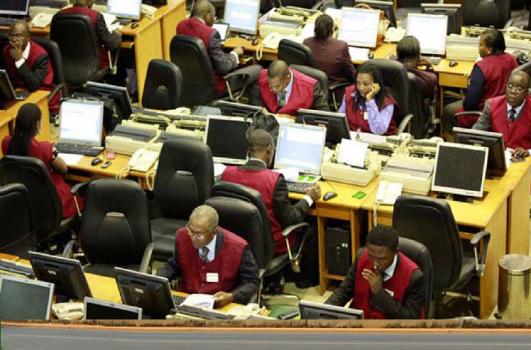Controversy ridden Unity Bank Plc has been named as one of the financial institutions likely to be sanctioned by the Nigerian Stock Exchange (NSE).
The financial institution is among a list of 28 companies which failed to meet post-listing requirements such as timely release of operational reports and financial statements.
A list of defaulting companies prepared by the NSE obtained recently showed three commercial banks, a microfinance bank, three mortgage bankers, five insurance companies, one investment management firm and 15 other firms in various non-financial sectors.
“The companies failed to submit their interim report and accounts for the period ended June 30, 2018,” the document was quoted to have said.
According to the NSE regulations, the default is marked out as a corporate governance failure, which attracts monetary fines, “naming and shaming” tag, suspension of shares from trading and delisting in incurable cases of default.

A source at the weekend confirmed that the Exchange “would apply relevant rules” in dealing with the defaulters.
Why Unity Bank Plc missed the regulatory deadline of July 30 might not be far from a long running internal power tussle that has bedeviled the bank for a while.
In recent times, the bank has been taking three steps backward and one forward with the controversy of how it withdrew from a million Dollar investment still legendry.
Under the NSE’s rules, a late submission attracts a fine of N100,000 daily for the first 90 calendar days of non-compliance, another N200,000 per day for the next 90 calendar days and a fine of N400,000 per day thereafter until the date of submission.
With these, late submission under the first instance of 90 days could attract N9 million, the additional 90 days will attract N18 million while such delay beyond the first 180 days to the next 180 days could attract as much as N72 million, bringing fines payable by a defaulting company within a year to N99 million.
The list of sanctions shows fines ranging from a low of N0.1 million to as high as N51.4 million. Companies had been fined more than N400 million and N500 million in 2016 and 2017 respectively for failure to submit accounts within scheduled periods.
If Unity Bank Plc falls into this pit, there is no gain saying that the Tomi Somefun-led financial institution which has been slumbering might just be history.
Efforts to reach the corporate department of the bank as regards what could have made it fail to meet the NSE deadline was fruitless as at time of going to press.
Post Views: 1,428